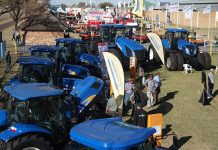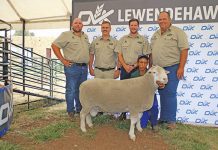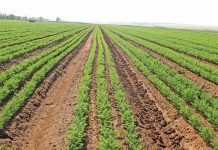between 80 and 100 bottlers of natural water in SA produce over 120 million litres a year, generating half a billion rand in turnover. Local mineral water consumption grew a phenomenal 34,7% in 2006, as South Africans became more health conscious and averse to chemically sanitised tap water. B ut John Weaver, hydrogeologist and chairperson of the African National Bottled Water Association (SANBWA), warns that even if a farmer owns a suitable water resource, developing a lucrative sideline from it isn’t always easy. “It’s a full-time job, not something to pursue in your spare time,” he explains.
“You have to be committed, but most importantly you have to be a salesperson at heart. When you look at a bottle you have to realise the water inside is a symbol of health and good living. Its quality requires getting the water microbiologically uncontaminated into the bottle and avoiding the number of places you can contaminate it – but that’s only 10% of the business. Some 90% of the hard work lies in the packaging, marketing and distribution. Get attractive packaging, then go knock on doors to get your product on the shelf. Once you’ve done that, you’ve got to make sure your distribution system is on the ball. The most important thing I tell farmers is to go look in the mirror and ask the person looking back at them if they’re a salesperson. If they can answer yes without hesitation, then they can make it work.”
Getting started ottled water needs to be microbiologically pure. Sinking a borehole costs at least R50 000 and the borehole needs to be well-protected. “The water must taste good,” says Weaver, “Mainly to yourself, because you’re the one selling the product.” Water should also always be analysed for its mineral and microbial content. “If the water is suitable, the farmer has to secure his water resource against contamination by yeast, pollen, spores and faecal matter from insects and animals,” he says. “More serious contamination threats come from organic chemicals, septic tanks and livestock kraals.” Bottling water means fulfilling a long list of requirements regarding buildings and facilities, hygiene, amenities and control, the filling operation and sanitation, your equipment, procedures, processes and control measures. SABS standard, SANS 1657, has rules for treatment, testing, bottling, packaging and labelling. Contact SANBWA on (011) 884 5916, e-mail [email protected] or visit www.sanbwa.org.za. |fw








